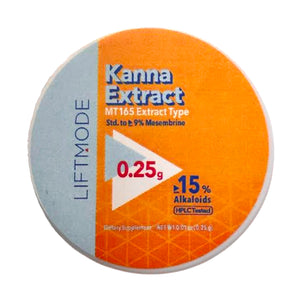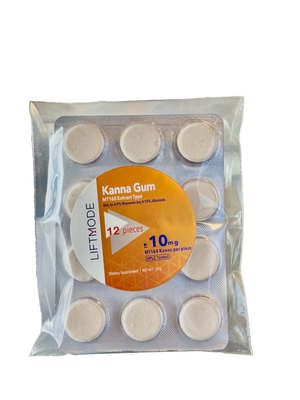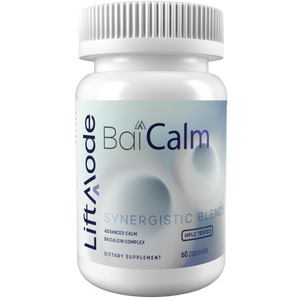What does Berberine Do?
[caption id=""attachment_2030"" align=""alignright"" width=""300""]Recommended Dosage
The recommended daily Berberine dosage to lower blood sugar is around 1500mg. [2] You can take Berberine 500 mg, three times daily to reach the correct recommended dosage. Using separate doses avoids potential gastrointestinal side effects like stomach cramps and nausea. [caption id=""attachment_2094"" align=""alignright"" width=""649""]Top 5 Berberine Side Effects:
1. Interacts with medication
Although Berberine is considered a very safe dietary supplement with a low toxicity and few side effects, it has the potential to interact with a large number of medications. For this reason, we do not recommend using Berberine HCl if you are taking any other type of medication. Please speak to your doctor if you’re taking any medication and would like to use a Berberine vulgaris extract. The most important Berberine interactions include:- May potentiate (increase) the effects of drugs that lower blood sugar. This is primarily due to Berberine’s blood sugar lowering effects.[3]
- Berberine inhibits certain cytochromes: CYP2D6, CYP2C9, and CYP3A4. These cytochromes are the targets of a large number of medications, and by using Berberine HCl with other medication, you run a risk of potential dangerous side effects.[4]
- Berberine has a powerful effect on anion transporter proteins in the cell membrane. A few medications use these transporters to access your cells and deliver their effects. One important medication is Metformin – a prescribed compound for type 2 diabetes.[5]
2. High doses may cause diarrhea, stomach cramps
Berberine toxicity is considered to be extremely low. It is a very safe dietary supplement and natural plant extract. The few Berberine side effects include mild gastrointestinal discomfort at high doses. It’s useful to know that Berberine was once used as a treatment for diarrhea. Berberine’s absorption in your stomach is less-than-optimal due to the action of a number of enzymes. These enzymes affect the efficiency of Berberine’s uptake. This is why, at high doses, the few side effects of Berberine can include:- Stomach cramps
- Gastrointestinal discomfort
- Nausea
- Diarrhea
3. Dangerous interaction with macrolide antibiotics
One important and potentially dangerous interaction to mention is Berberine with macrolide antibiotics. There is evidence that Berberine can interact with a certain class of antibiotics called macrolide antibiotics. These include the antibiotics azithromycin and clarithromycin. The Berberine toxicity occurs at hERG channels in the heart. There is a potential for serious negative health effects in these interactions. Please make sure that you avoid taking Berberine if you are using antibiotics, especially macrolide antibiotics.[6] On another note, some preliminary research shows Berberine's potential antibiotic effects in the laboratory. Recent studies have indicated that Berberine may have a synergistic relationship with some antibiotic medications. [7] Multidrug resistance (MDR) pump inhibitors may also increase Berberine’s antibiotic activity in the lab. [8]Top 3 Berberine Stacks:
1. Berberine with P-Glycoprotein inhibitors
P-Glycoprotein is involved in the absorption of Berberine by your stomach. It seems that P-Glycoprotein contributes to the poor absorption of Berberine. Animal studies have shown that combining Berberine with a P-glycoprotein inhibitor can increase the Berberine absorption rate by up to 6 times! [9] Many P-glycoprotein inhibitors are research chemicals or laboratory-made compounds. These tend to have acceptable toxicity ratings, but can be difficult to obtain and may have unwanted side effects. Some natural P-glycoprotein inhibitors are found in certain plant chemicals like flavonoids and stilbenes. Natural sources include:- Baicalein and Baicalin
- Grapefruit juice
- Quercetin
- Milk thistle
- Stephania tetrandra [10]
2. Berberine with Sodium Caprate
Sodium caprate (also known as decanoic acid) is a research chemical with a number of applications in science. It has been studied for its benefits in improving the absorption of many chemical compounds in medicine. Recent Berberine reviews have found that Sodium caprate significantly helps to improve the absorption of Berberine vulgaris extracts. Research suggests that Berberine has a fairly poor rate of absorption in your stomach. Sodium caprate improves the transport of Berberine into the blood from your stomach.[11]3. Berberine with Quercetin
[caption id=""attachment_2030"" align=""alignright"" width=""300""]Conclusion
In conclusion, Berberine is a safe dietary supplement to use on its own. It may have a synergistic relationship with a number of other health-promoting substances. Research is still being compiled about the synergistic relationship of Berberine with other health-promoting supplements. The recommended Berberine dosage is around 1500 mg per day, taken in two to three separate doses. Taken alone, Berberine toxicity is very low. Berberine side effects may include gastrointestinal discomfort and nausea at high doses. An important note is that Berberine may interact with a large number of medications, causing potentially dangerous health effects. If you are taking any other medication, please speak to your doctor to help avoid the side effects of Berberine interactions. [caption id=""attachment_2097"" align=""alignright"" width=""640""]Medical Disclaimer
Not intended to treat, diagnose, or cure any disease or ailment. Please read and fully understand potential adverse effects before using this product. These statements have not been reviewed by the FDA and are not written by a medical professional. Please consult your doctor before using any supplements, especially if you have any medical conditions.
Tristan
B.Sc. in Molecular Biology and Biochemistry Researched & written by Tristan and verified by the Liftmode.com Research Team




